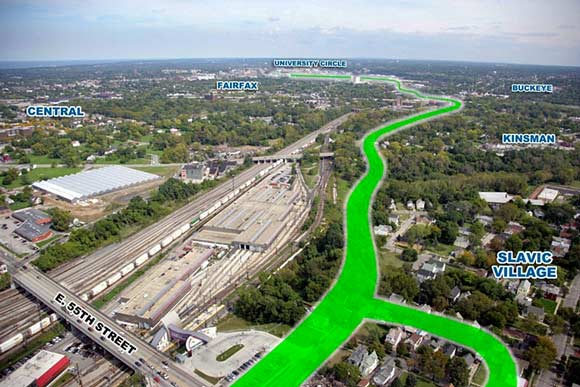Boosters of a new three-mile road that will be gouged through low-income black neighborhoods in Cleveland -- known euphemistically as the "Opportunity Corridor" -- have always insisted that the project is not about speeding car commutes for suburbanites who work at the Cleveland Clinic.
The very name "Opportunity Corridor" was a defense tactic to deflect criticism. How dare you impugn our motives, project supporters said, when this asphalt needs to be poured for the sake of the neighborhoods bisected by the road.
But in a recent Politico article, a representative of the Cleveland Clinic suggests that -- whoops -- the actual motivation was less than altruistic. Politico's Dan Diamond reports:
When asked about the project’s purpose, the Clinic’s top tour guide explained that the current road to campus 'goes through neighborhoods that people don’t want to go through' and the Opportunity Corridor would help staff and patients get to the hospital faster.
The Politico article highlights the deep distrust of the project and the hospital among residents of the surrounding neighborhoods. The Clinic's own tour guide confirmed those suspicions.
And yet throughout the process of planning and funding this road, Cleveland policy makers, elected officials, and civic leaders have remained largely supportive, saying that it will help attract investment to "forgotten" sections of the city. Meanwhile, critics -- myself included -- have pointed out that even if you take the project at face value, it's just rehashing discredited 1950's-era notions of "urban renewal."
America's original highway-building spree fueled segregation, tearing up black neighborhoods so white suburbanites could have driving access to the city. Cleveland's so-called "Opportunity Corridor" is perpetuating that legacy.
More recommended reading today: If you want to learn more about the Opportunity Corridor and what it says about Cleveland politics, Chris Stocking has an in-depth look. And City Observatory points out the hypocrisy of employers that go to great lengths to make their buildings green but still supply free parking.






